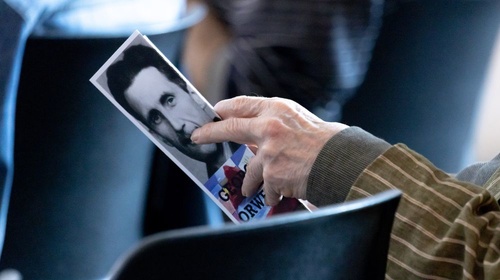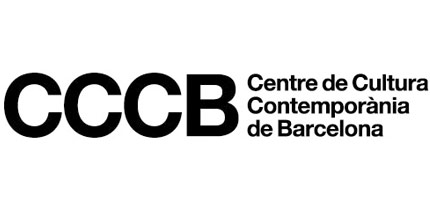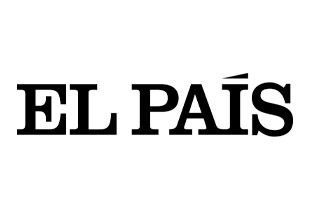Architectures of Fear: Terrorism and the Future of Urbanism in the West.
Debate
The aim of this symposium is to reflect upon the ideology of fear that has characterised the international scene since 9/11 and thus to draw conclusions about the reshaping of the politics of security in the West, its impact on city design and the difficulties this entails for keeping democratic principles alive.
New York, 11 September 2001. Madrid, 11 March 2004. London, 7 July 2005. The spectre of terrorist attacks has come to dominate the collective unconscious of many cities of the West. Planes, trains, underground transport, features of urban infrastructure that were once symbols of cosmopolitan freedom and prosperity, have now become, in the hands of terrorists, lethal weapons that threaten the very life of the city. In the aftermath of the attacks, many urban spaces are being represented as objects of total security within the framework of a recently declared war against global terrorism that has no clear end in temporal terms and no fixed geographic limits. Not only terrorism but also counterterrorist responses have begun to influence urbanism in the West and may be striking at the heart of an urban way of life that is founded on inclusion, anonymity and pluralism.
Directed by Stephen Graham (University of Durham) and hosted by the CCCB, the present debate forms part of an ongoing series reflecting on the intersections of power and territory. This began in 2004 with the "Frontiers" cycle after which followed the debates on "Urban Traumas" (2004) and the "Archipelago of Exception" (2005).
Thursday 17 May
9.30 a.m. Welcome and Introduction
Josep Ramoneda, director of the CCCB.
Stephen Graham, Professor of Human Geography, University of Durham.
10 a.m. - 12 noon The Urban Impacts of Terrorism
There are clear similarities between the attacks on New York, Madrid and London. In each case, the infrastructureessential for the city's everyday functioning was used as a devastating weapon of killing and destruction against theinhabitants. The immediate popular and cultural responses to the attacks swiftly extended far and wide. Nonetheless,it is not clear whether the attacks and the political responses to them have brought about significant reforms in theeconomic, cultural and political geographies of these cities, while uncertainty over the real threat of internationalterrorism still prevails.
Moderator:
Judit Carrera, Head of the Academic Programme of the CCCB.
Speakers:
Peter Marcuse, Emeritus Professor of Urban Planning at Columbia University. "Homeland Insecurity, its Uses and Effects in New York and the United States".
Angharad Closs, PhD researcher, Centre for Politics and International Studies, University of Keele. "7 Million Londoners, 1 London: National and Urban Ideas of Community in the Aftermath of the 7th July Bombings".
José María Irujo, El País journalist and author of El agujero. España invadida por la yihad (The Hole. Spain Invadedby Jihad - Aguilar, 2005). "Jihad in Europe: A Real Threat".
12 noon - 12.30 p.m. Coffee break
12.30 - 2.30 p.m. Urban Security and Fabricating Fear
The unpredictable nature of the attacks has been extensively exploited from the political, military and security domains to create an atmosphere of fear in the cities, especially in the United States and the United Kingdom. Instead of presenting terrorism as a criminal act that threatens public security, fear-mongering has taken the form of suggesting that terrorist actions constitute attacks of a military order, that they are nothing less than a new kind of war that undermines national security and therefore a military response rather than police action is required. Essentially, a militarised paradigm treats each urban location as a potential battlespace in the struggle against unseen "terrorists". This also leads to the use of harsh, racially-based techniques against populations of ethnic minorities, while there are also attempts to undermine, criminalise and "freeze" freedom of association, movement and protest. Such activities raise important questions about how cultures of fear are fabricated and experienced in cities, and what they mean for the urban condition and justice in cities of the West.
Moderator:
Marina Garcés, Lecturer in Philosophy at the University of Saragossa and consultant to the Open University of Catalonia.
Speakers:
Frank Furedi, Professor of Sociology at the University of Kent. "Fear Rules - the Expansion of the Empire of the Unknown".
Francesc Muñoz, Lecturer in Urban Geography and director of the Urban Planning Observatory, Autonomous University of Barcelona. "Lock Living: Urban Sprawl in Mediterranean Cities".
Jeremy Packer, Associate Professor of Communication Studies, College of Communications, University of North Carolina. "Militarized Mobilities".
7p.m. - 9 p.m. Lecture by Michael Sorkin
Presentation:
Joan Busquets, Urban planner of the Universitat Politècnica de Catalunya and professor of the Graduate School of Design of the University of Harvard.
Speaker:
Michael Sorkin, architect, author of After the Worl Trade Center: Rethinking New York City (Routledge, 2002) and Starting From Zero: Reconstructing Downtown New York (Routledge, 2003). "Back to Zero: Mourning in America".
Respondent:
Stephen Graham, Professor of Human Geography, University of Durham.
Friday 18 May
9.30 a.m. - 11.30 a.m. Surveillance and the Culture of Security
The war against terrorism has focused on the development of new systems of surveillance that, despite the complexity of the urban context, continually attempt to monitor people, objects and capital movements in order to identify behaviour or flows that are deemed "anomalous". With the adoption of military-style paradigms of "target recognition", these systems are being installed in cities, transnational airlines, transport systems and communications networks, and are also used as support for Western military expeditions to cities in the Middle East. These initiatives involve major reshaping of frontier geographies and technologies and suggest close ties between today's technologybased revolution in military affairs and the national security measures that affect the urban infrastructure of Western cities.
Moderator:
Gemma Galdon Clavell, coordinator of the Resistance and Subcultures Observatory (RiSc) and researcher at the Transnational Institute, Amsterdam.
Speakers:
Louise Amoore, researcher at the Institute for Hazard and Risk Research, Department of Geography, University of Durham. "Vigilant Visualities: the Watchful Politics of the War on Terror".
Jordan Crandall, media artist and theorist, Los Angeles. "Precision+Guided+Seeing".
Stephen Graham, Professor of Human Geography, University of Durham. "The New Military Urbanism".
11.30 a.m. - 12noon Coffee Break
12 noon - 2.30 p.m. Architecture for Security
One response to the threat of terrorist attacks, common both to states and city-based security organisations, has been to redesign roads, buildings and urban spaces in order to fortify possible targets of attack and create defensive landscapes in general. The aim is to replace a relatively free and open model of mobility with one that consists in channelling the movements of citizens through of a series of points of convergence where architectural and monitoring techniques are employed to legitimise and observe them. This process frequently becomes more secretive over time because it entails incorporating bomb-proof elements into architecture and the landscape. Urban design, traffic monitoring and scrutiny of criminal activity are also used as means of combating terrorism. Far-reaching political questions about the architecture of cities are therefore raised when urban landscapes are redesigned for the sole purpose of reducing the risks of terrorist attacks.
Moderator:
Carles Guerra, artist and art critic and lecturer in Contemporary Art at the Pompeu Fabra University.
Speakers:
Deborah Natsios, Director of Natsios Young Architects, New York. "Towards a New Blast Zone".
Francisco Klauser, researcher at the Institute for Hazard and Risk Research, Department of Geography, University of Durham. "FIFAland 2006TM: Securitisation and Branding of Germany's City Network during the Football World Cup".
Ulrike Engel, researcher, Technical University of Berlin."Architectures of Securitisation in Berlin".
7 p.m. - 9 p.m. Terrorism, Fear and the City
There is a danger that terrorism, counterterrorism and the fabrication and consumption of fear can set up a vicious circle that will weaken the long-term vitality, habitability and sustainability of urban planning in the West. The aim of this closing session is to reflect upon the politics of urban terror and counterterrorism in Western cities and, in the face of these new challenges, to consider appropriate ways of defending citizens' rights in the city.
Moderator:
Joan Subirats, Professor of Political Science at the Autonomous University of Barcelona.
Speakers:
Julie-Anne Boudreau, Canada Research Chair, Institut National de la Recherche Scientifique, Montreal. "Urban revolution or urban involution? Reflections on the role of the state in producing security".
Eyal Weizman, architect and director of the Centre for Research Architecture, Goldsmith College, University of London. "Technologies of the Lesser Evil".
Presenters: Josep Ramoneda, Stephen Graham
Moderators: Judit Carrera, Marina Garcés, Joan Busquets, Gemma Galdon Clavell, Carles Guerra, Joan Subirats
Participants: Peter Marcuse, Angharad Closs, José María Irujo, Frank Furedi, Francesc Muñoz, Jeremy Packer, Michael Sorkin, Stephen Graham, Louise Amoore, Jordan Crandall, Deborah Natsios, Ulrike Engel, Julie-Anne Boudreau, Eyal Weizman, Francisco R. Klauser






